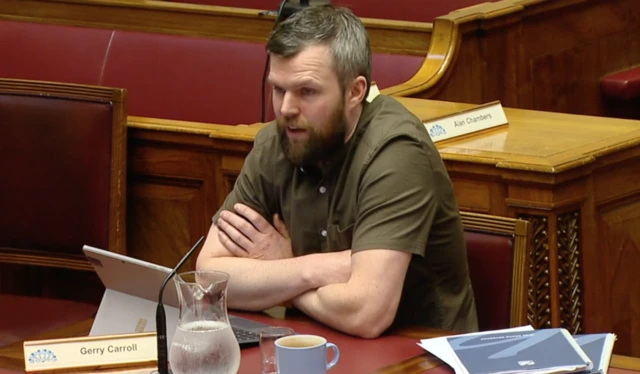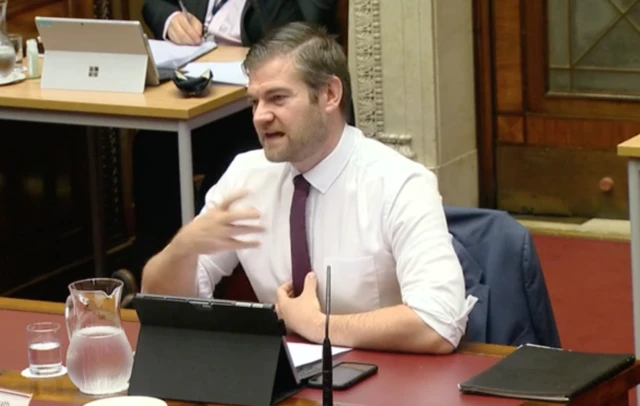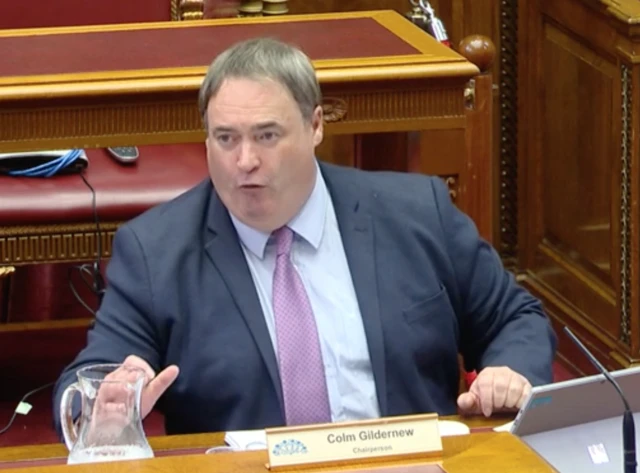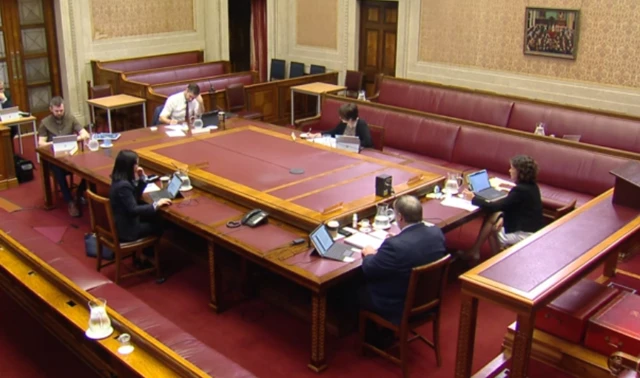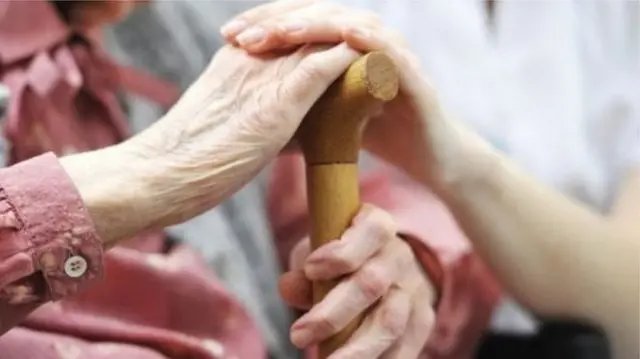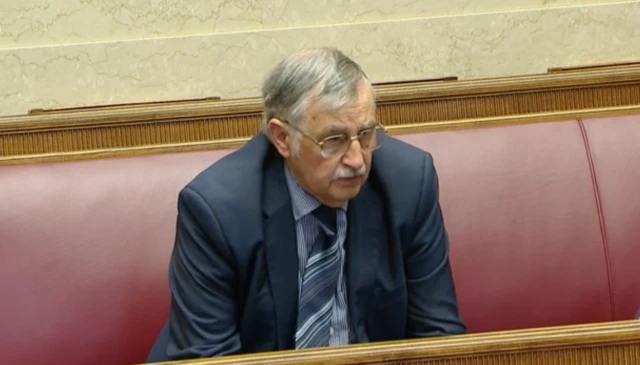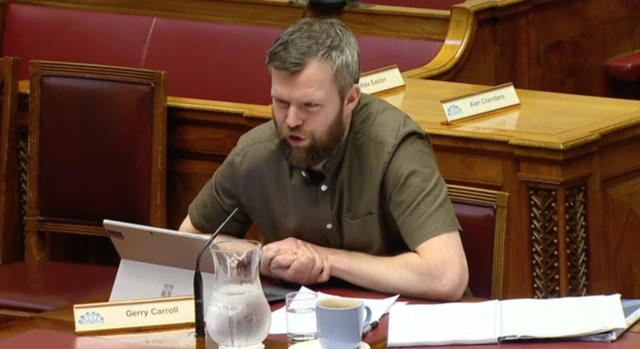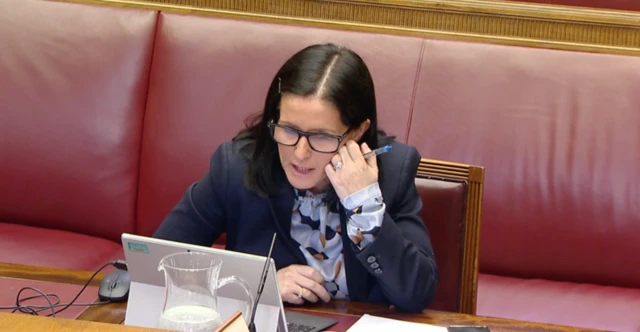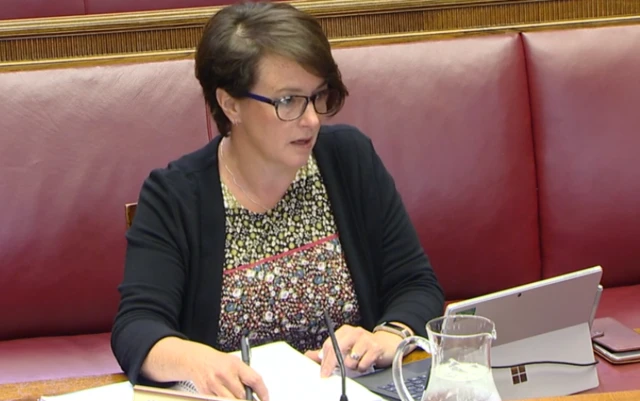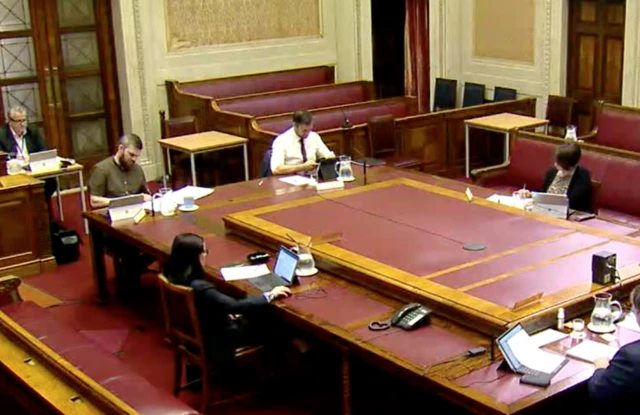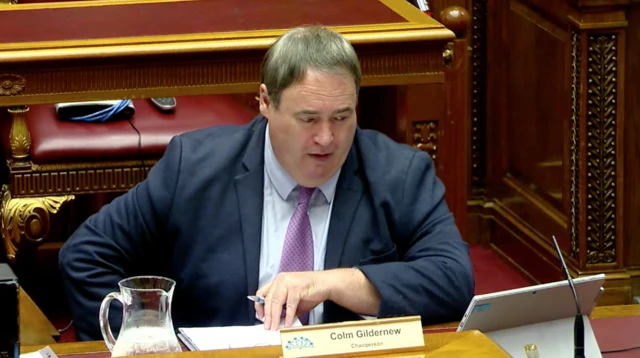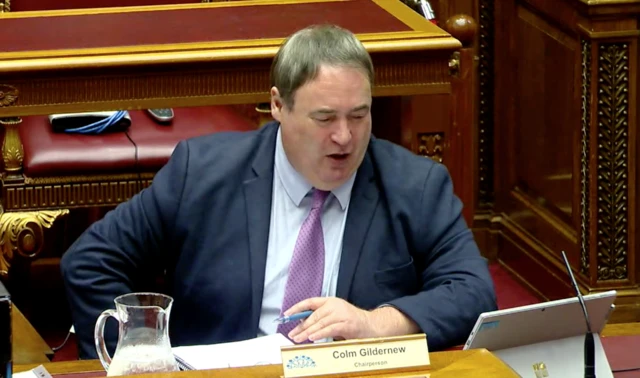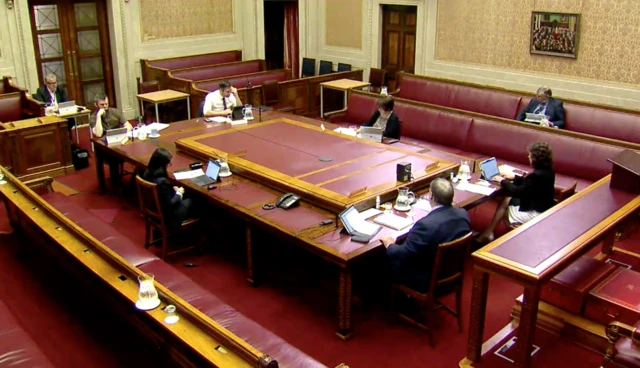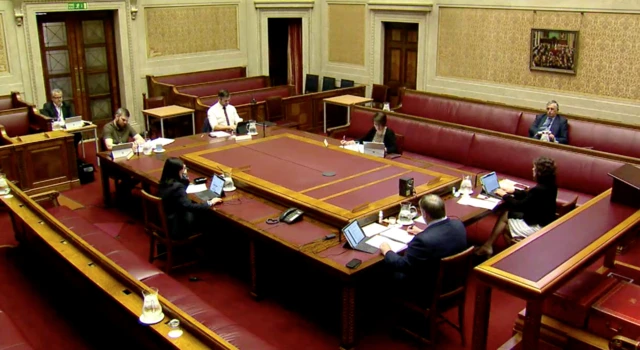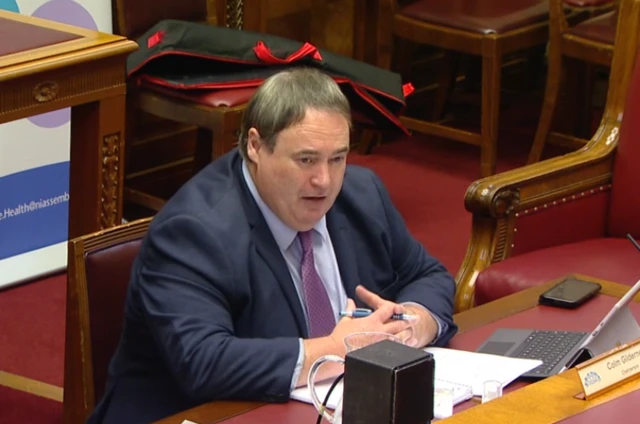Funding for care homespublished at 13:12 BST 21 May 2020
Paula Bradshaw of Alliance asks if £6.5m of funding from the department has gone to care homes yet.
Ms Shepherd says "yes it would have went through into account possibly last Friday or the Friday before".
"I do believe that money has been allocated," she adds.
The IHCP representative adds that the body has put in a proposal to the department regarding additional costs to care homes resulting from Covid but has been advised by the department that the proposals can't be seen as independent.
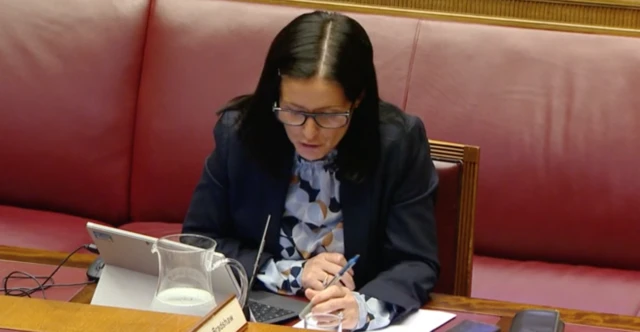 Image source, NI Assembly
Image source, NI AssemblyMs Shepherd continues that she is aware "the department are considering additional funding" but says it is unclear "what shape that is or what it looks like".
Mrs Bradshaw then makes a declaration that she has a family member who worked in a care home.
